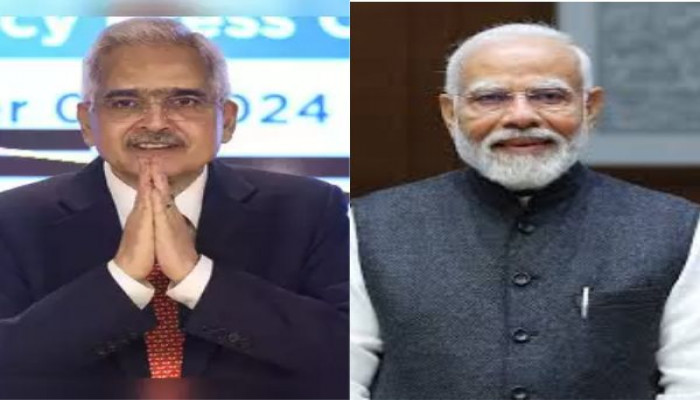Former RBI Governor Shaktikanta Das appointed as PM Modi’s senior principal secretary
- In Reports
- 09:04 PM, Feb 22, 2025
- Myind Staff
Former Reserve Bank of India (RBI) Governor Shaktikanta Das has been appointed as Principal Secretary-2 to Prime Minister Narendra Modi. The Appointments Committee of the Cabinet approved his appointment, which will take effect from the day he assumes office. His tenure will be co-terminus with the Prime Minister’s term or will continue until further orders.
Shaktikanta Das, 67, is a retired Indian Administrative Service (IAS) officer from the 1980 Tamil Nadu cadre. He holds a master’s degree in history from St. Stephen’s College, Delhi, and a postgraduate degree in public administration from the University of Birmingham.
He has held several key positions in the Indian government, including Secretary of the Department of Revenue and Secretary of the Department of Economic Affairs. He was a member of the 15th Finance Commission and served as India’s G20 Sherpa.
During his tenure as Economic Affairs Secretary, Das played a critical role in India’s demonetisation drive in November 2016, when the government withdrew high-value currency notes from circulation. He was also instrumental in implementing the Goods and Services Tax (GST), which replaced multiple indirect taxes with a single tax structure on July 1, 2017.
Das took over as RBI Governor in 2018, following the sudden resignation of Urjit Patel. His leadership was crucial in navigating India’s financial sector during the COVID-19 pandemic, ensuring economic stability amid global disruptions. In 2021, his term as governor was extended for three more years. He stepped down in December 2024, after serving six years in office.
Following his departure, Sanjay Malhotra was appointed as the 26th Governor of the RBI.
Shaktikanta Das’s vast experience in economic policymaking, financial governance and crisis management makes him a key asset in the Prime Minister’s Office (PMO). His appointment to this senior advisory role is expected to strengthen economic decision-making and policy execution at the highest level of government.







Comments